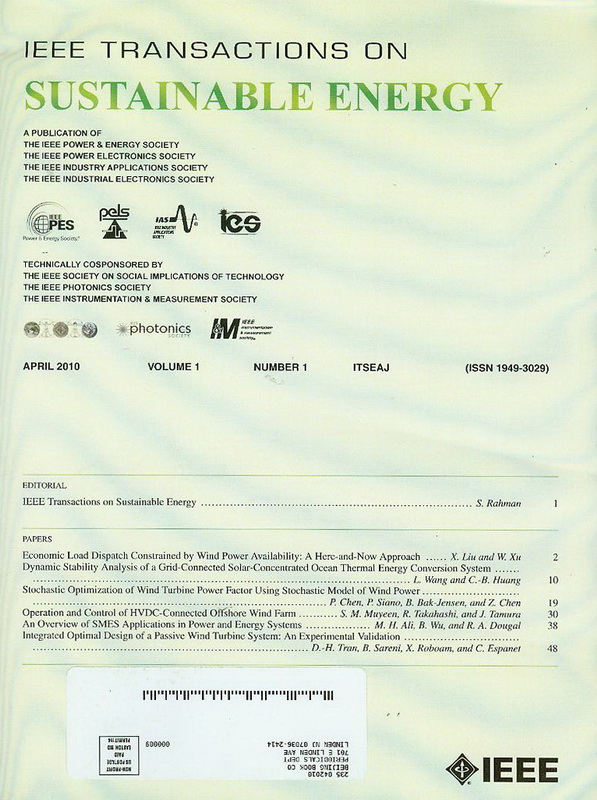Assessing Dynamic Reserves vs. Stochastic Optimization for Effective Integration of Operating Probabilistic Forecasts
IF 10
1区 工程技术
Q1 ENERGY & FUELS
引用次数: 0
Abstract
Probabilistic forecasting is becoming pivotal in utilities' decision-making processes, offering an accurate portrayal of plausible forecast deviations as opposed to deterministic forecasting which only focuses on the expected forecasted variables. Two methods, dynamic reserve and stochastic optimization, have been used to integrate probabilistic forecasts into power system operational planning. Dynamic reserve predicts system reserve requirements based on observed (from historical observations) or expected (from probabilistic forecasts) uncertainty spreads. This approach has a low computational burden, but it is commitment and dispatch agnostic. Stochastic optimization, on the other hand, considers multiple scenarios simultaneously (from probabilistic forecasts), allocating recourse across the commitment and dispatch variables, but demanding high computational resources and time. The selection between these methods depends on utility requirements and specific situations. This paper conducts a comprehensive evaluation of both methods using a calibrated real-size system representing the Southern Company for medium and high solar penetration levels. Additionally, it proposes a hybrid dynamic reserve and stochastic optimization approach with a risk evaluation pre-scheduling procedure to enhance decision-making.动态储量评估与运行概率预测有效整合的随机优化
概率预测在公用事业的决策过程中正变得至关重要,它提供了对合理预测偏差的准确描述,而确定性预测只关注预期的预测变量。将概率预测与电力系统运行规划相结合,采用了动态储备和随机优化两种方法。动态储备根据观察到的(来自历史观察)或预期的(来自概率预测)不确定性差预测系统储备需求。这种方法具有较低的计算负担,但它与承诺和调度无关。另一方面,随机优化同时考虑多个场景(来自概率预测),在承诺和调度变量之间分配追索权,但需要高计算资源和时间。这些方法之间的选择取决于实用需求和具体情况。本文对这两种方法进行了综合评估,使用了一个校准的实际尺寸系统,代表南方公司的中高太阳能渗透水平。在此基础上,提出了一种带有风险评估预调度程序的动态储备与随机优化混合方法,以增强决策能力。
本文章由计算机程序翻译,如有差异,请以英文原文为准。
求助全文
约1分钟内获得全文
求助全文
来源期刊

IEEE Transactions on Sustainable Energy
ENERGY & FUELS-ENGINEERING, ELECTRICAL & ELECTRONIC
CiteScore
21.40
自引率
5.70%
发文量
215
审稿时长
5 months
期刊介绍:
The IEEE Transactions on Sustainable Energy serves as a pivotal platform for sharing groundbreaking research findings on sustainable energy systems, with a focus on their seamless integration into power transmission and/or distribution grids. The journal showcases original research spanning the design, implementation, grid-integration, and control of sustainable energy technologies and systems. Additionally, the Transactions warmly welcomes manuscripts addressing the design, implementation, and evaluation of power systems influenced by sustainable energy systems and devices.
 求助内容:
求助内容: 应助结果提醒方式:
应助结果提醒方式:


